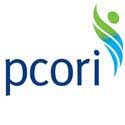Crowdfunding is all the rage these days, with everyone from charities to start-up companies offering ways for masses of people to kick in small amounts of money that together can make big things happen.
Now, the crowdfunding wave is sweeping across the medical research community.
A University of Michigan Health System team has just won a national prize for their prototype of a web-based fundraising platform. The team won a $40,000 award in the prototype category of the PCORI Challenge, a competition sponsored by the federally authorized nonprofit Patient-Centered Outcomes Research Institute.
Their award comes on the heels of the recent launch of a crowdfunding effort to help U-M researchers find a cure for the debilitating skin disease scleroderma. Read more about that effort, which is backed by U-M philanthropists Jon and Lisa Rye.
Patients, please
WellSpringboard, which emerged from the PCORI Challenge, would make it possible for anyone to propose and chip in money for ideas for new patient-focused research studies—and for researchers to propose that they get the money and carry out the study if enough dollars are raised. The site would focus on comparative effectiveness studies—those designed to compare different prevention, diagnostic, or treatment options.
The team, led by U-M physician and health researcher Matthew M. Davis, MD, MAPP, will invest the prize money directly into further development of the WellSpringboard concept, to move it toward an eventual launch.
“We want to bring the public’s voice into the world of health research, to allow them to ask for answers to questions that are most important to patients of all ages and the people who care for them,” Davis explains. “We also want to make it possible for researchers to join the virtual exchange of ideas that can attract broad public attention and investment. Researchers will be able to apply for the funding raised by the public, through a scientifically rigorous review process that involves scientists and non-scientists.”
Davis worked with U-M’s Anna Daly Kauffman, BA, and Dianne C. Singer, MPH, faculty colleagues Joyce Lee, MD, MPH, and Susan Woolford, MD, MPH, and staff from the Ann Arbor web development firm Inner Circle Media, to develop the WellSpringboard concept and prototype.
Davis, who is an associate professor of pediatrics and internal medicine at the U-M Medical School and associate professor of public policy at the Gerald R. Ford School of Public Policy, says the WellSpringboard concept aims to connect patients and their research ideas with researchers who can carry them out.
As the prototype moves closer to reality, Davis and his colleagues envision that members of the public and researchers will be able to create and upload brief videos showcasing their ideas or expertise.
By visiting the WellSpringboard website, the public could then select research ideas to contribute funds to, in any amount. Their money would only be used if the concept reaches a certain threshold and a researcher is chosen to carry out the study.
“Even if someone couldn’t contribute financially, they could still say that they are willing to take part in the study, if that’s possible,” explains Davis, who notes that researchers often struggle to find enough people to participate in their studies.
Members of the public also could volunteer to review the proposals from researchers, similar to review processes that PCORI has already established. A panel made up of expert reviewers and members of the public would choose the winner for each idea that gets funded through the unique platform.
Related: More information on the U-M Scleroderma Program; Support the research; Visit The Scleroderma Cure Fund on Facebook.
Related: Rebranding Fundraising as Fun.



